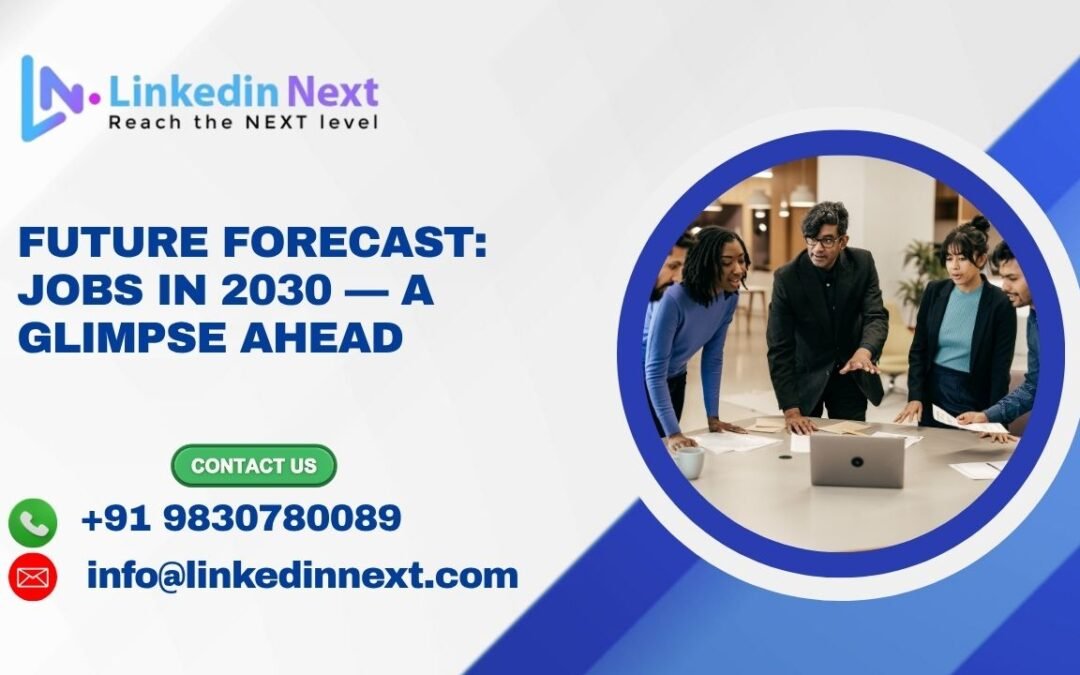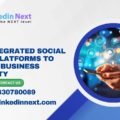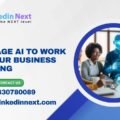Future Forecast: Jobs in 2030 — A Glimpse Ahead
Future Forecast: Jobs in 2030 — A Glimpse Ahead. The world of work is undergoing a seismic transformation. By 2030, the nature of employment, the skills in demand, and even the definition of a “job” will be radically different. As artificial intelligence (AI), automation, and digital transformation accelerate, industries are reinventing themselves — and so must the workforce. In this article, we explore what the future of jobs in 2030 looks like, which careers will thrive, and how individuals can prepare for an AI-driven, human-centric economy.
The Shifting Landscape of Work
The Fourth Industrial Revolution is redefining how we live and work. As automation takes over repetitive tasks, companies are prioritizing creative, analytical, and emotional intelligence-driven roles. The World Economic Forum projects that by 2030, over 800 million jobs may be automated, but millions of new roles will emerge — primarily in AI, green energy, data analytics, and digital healthcare.
The jobs of the future will not just be about technology; they’ll be about blending human insight with machine efficiency. Organizations that embrace this hybrid model will lead the future of innovation and productivity.
Top Emerging Jobs by 2030
1. AI and Machine Learning Specialists
The demand for AI engineers, data scientists, and prompt engineers will continue to skyrocket. These professionals will design, train, and optimize intelligent systems that power industries — from personalized education to predictive healthcare.
2. Climate and Sustainability Analysts
With sustainability becoming a global priority, green jobs will dominate. Professionals in renewable energy, carbon footprint analysis, and environmental engineering will help companies transition toward net-zero emissions.
3. Cybersecurity Experts
As digital ecosystems expand, so do threats. The need for ethical hackers, cybersecurity analysts, and data protection officers will rise sharply. By 2030, cybersecurity will be a cornerstone of business integrity and national security.
4. Digital Healthcare Professionals
The convergence of AI, biotechnology, and telemedicine will transform healthcare. Genomic data analysts, AI-assisted doctors, and digital wellness coaches will redefine patient care, enabling early diagnosis and personalized treatment.
5. Virtual Experience Designers
With the metaverse and AR/VR technologies becoming mainstream, experience designers, virtual architects, and spatial storytellers will craft immersive digital environments for entertainment, work, and education.
6. Robotics Engineers
From autonomous vehicles to robotic caregivers, robotics engineers will build the machines that shape the future. Their work will be essential in manufacturing, logistics, healthcare, and even space exploration.
7. Human-AI Interaction Specialists
This new role bridges psychology, ethics, and technology. Human-AI interaction experts will ensure that automated systems are not only functional but also empathetic, ethical, and human-centered.
8. Data Privacy and Ethics Officers
With AI making decisions that affect lives, ethics officers and data privacy consultants will ensure that innovation aligns with moral responsibility, fairness, and transparency.
The Rise of the Hybrid Worker
The workforce of 2030 will be dominated by hybrid professionals — individuals combining technical proficiency with creativity and emotional intelligence. For example, a marketing data analyst will not only interpret data but also use storytelling to connect insights to strategy.
Soft skills such as adaptability, collaboration, and problem-solving will be just as critical as coding or automation expertise. In essence, the human touch will become the most valuable differentiator in an AI-powered world.
Industries That Will Boom by 2030
1. Green Energy and Sustainability
Governments and corporations will invest heavily in solar, wind, and hydrogen power, creating millions of eco-friendly jobs. Circular economy experts and sustainability consultants will play a vital role in shaping global policies.
2. Health and Biotechnology
As global populations age, biotech innovation will drive breakthroughs in genomics, regenerative medicine, and AI-assisted diagnostics — leading to longer, healthier lives and vast job opportunities.
3. AI-Powered Education
By 2030, learning will be personalized, adaptive, and lifelong. AI tutors, curriculum designers, and digital learning architects will help reshape how humans acquire knowledge across their lifespan.
4. Smart Infrastructure and Urban Tech
With urbanization accelerating, smart cities will demand expertise in IoT systems, green architecture, and sustainable urban planning to build efficient, eco-conscious communities.
Skills That Will Define Success in 2030
To stay relevant, professionals must embrace lifelong learning and continuously update their capabilities. The key skills of the future include:
-
AI Literacy and Data Analytics
-
Critical Thinking and Complex Problem Solving
-
Emotional Intelligence and Empathy
-
Digital Communication and Storytelling
-
Creativity and Design Thinking
-
Ethical and Strategic Decision-Making
The ability to learn, unlearn, and relearn will be the ultimate advantage in a fast-evolving digital world.
The Role of Education in the AI Era
Traditional education systems are evolving to keep pace with automation. By 2030, universities will integrate AI, sustainability, and interdisciplinary studies across all programs. Micro-credentials, online certifications, and AI-based skill assessments will replace rigid degree models.
Learning will become more personalized, focusing on practical application and adaptability rather than rote memorization. Institutions that adopt AI-driven learning ecosystems will lead the global education revolution.
Challenges Ahead: Ethics, Inequality, and Access
While AI promises efficiency, it also raises ethical dilemmas — from algorithmic bias to digital surveillance. Governments and organizations must ensure that technology empowers rather than excludes.
There’s also the risk of a digital divide, where only those with access to advanced education and technology thrive. To prevent inequality, global collaboration is essential to ensure that AI benefits humanity collectively.
Preparing for 2030: Steps You Can Take Today
-
Invest in continuous learning – Enroll in online AI and tech-related courses.
-
Embrace adaptability – Be ready to pivot as industries evolve.
-
Develop hybrid skills – Combine technical expertise with creativity and communication.
-
Build a digital portfolio – Showcase projects that highlight your future-ready skills.
-
Stay informed – Follow global trends in AI, climate policy, and workforce innovation.
Conclusion: The Human Edge in an AI Future
By 2030, the job market will not be about competing with machines but collaborating with them. Success will belong to those who embrace lifelong learning, adaptability, and ethical innovation. The future of work is not just about automation — it’s about amplifying human potential.
In the era of AI, our greatest strength remains our creativity, empathy, and ability to imagine what comes next.
Thank you for read our blog “Future Forecast: Jobs in 2030 — A Glimpse Ahead”.
Also read our more BLOG here.
I hope this blog is helpful to you, if you have any question feel free contact us at
Call/WhatsApp: +91.9830780089 || Email: info@linkedinnext.com







Recent Comments